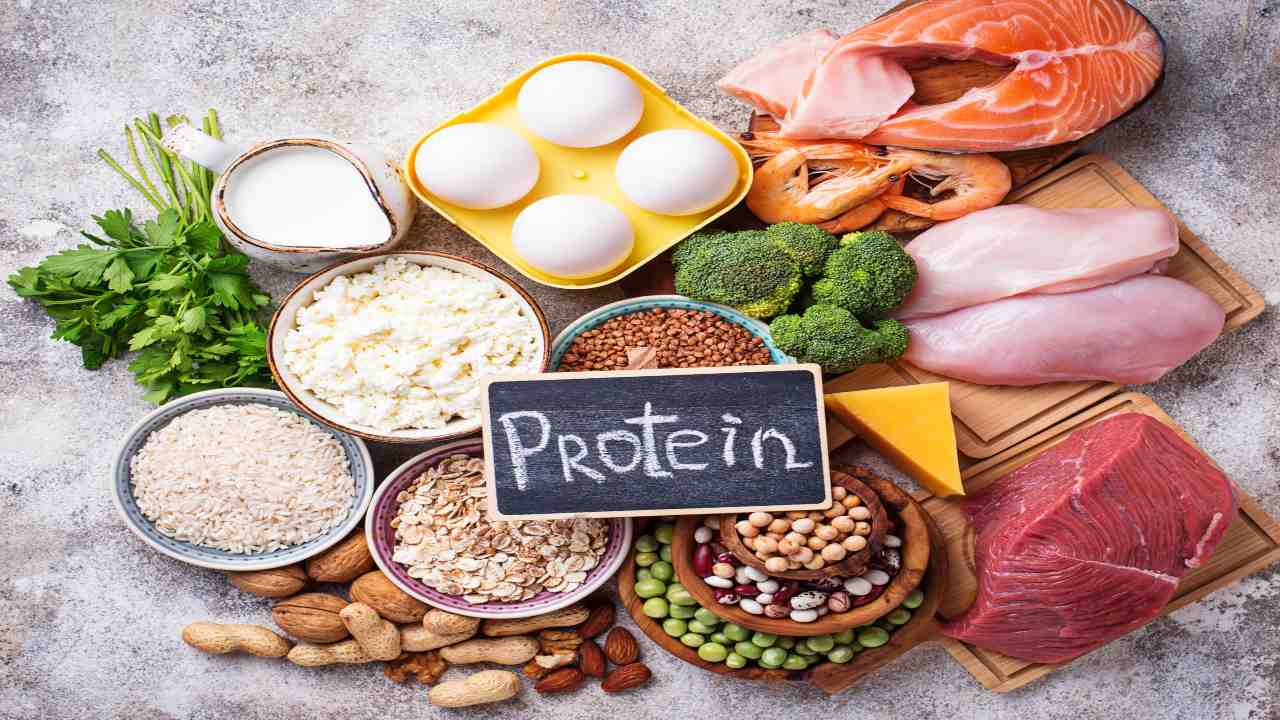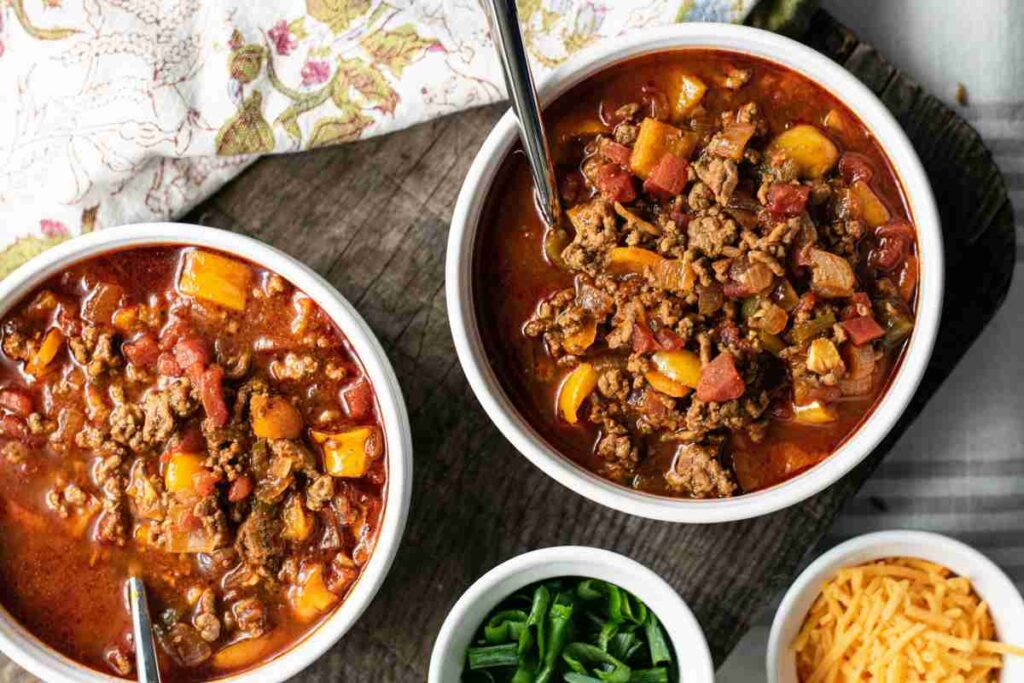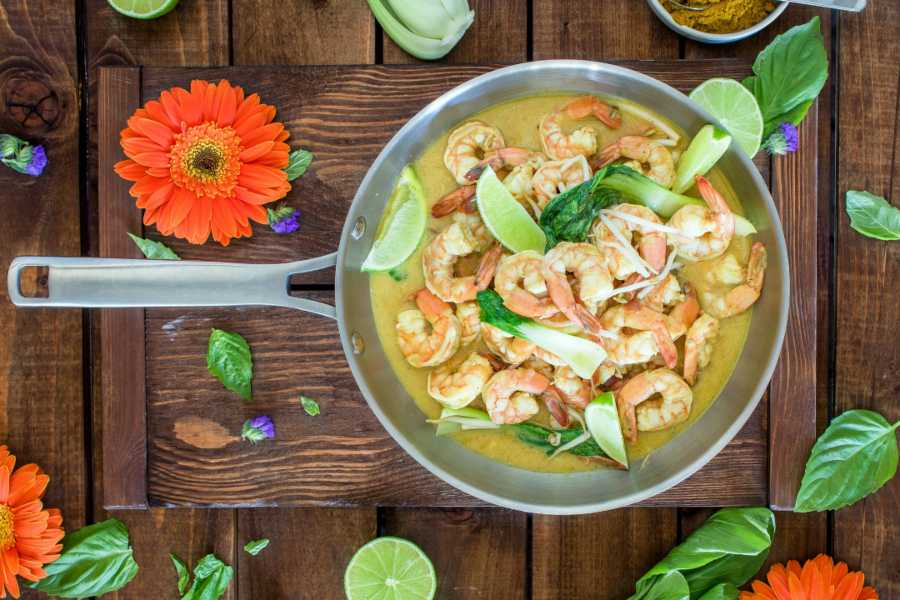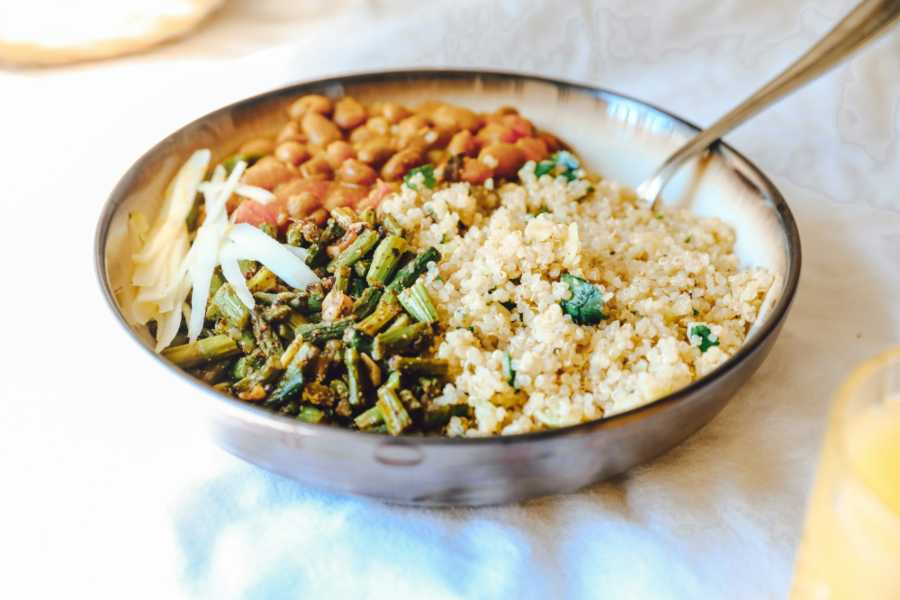Get In Touch
Info@fitfaysal.com

Protein, often referred to as the building block of life, plays a big role in our overall well-being. And if you’re looking for a list of high protein foods in Nigeria, you’ve hit the jackpot!
Although most of the foods on this list are very common, I think you will find some new high protein foods to add to your meal plans.
As you know by now, protein is very essential; It’s the nutrient that fuels our muscles, aids in weight management, keeps us feeling full and energized, and much more.
So, choosing the right protein sources is critical if you want to increase your protein intake consistently.
Without saying too much, let’s dive into this list where every bite is a step towards a stronger, fitter you—a world of high-protein foods.
And if you want to precisely know what protein is, how it benefits you, and how much of it you need, keep scrolling after the list.

Our average Nigerian foods contain mostly carbohydrates, from white rice and yam to Garri, Indomie, and much more, which are high in calories.
While protein can be found in small amounts in various foods, the foods on this list are some of the highest in protein, which are better at nourishing your body.
No matter how it is prepared, beans just cannot disappoint. This unassuming legume offers a huge dose of protein, making it a fantastic addition to your meals.
With any type of bean, you can easily hit your recommended protein intake.
Egusi, our culinary gem, is a small seed with a big protein punch.
This plant protein is a key player in muscle development and overall nutrition due to its richness in healthy fats.
Eggs alongside chicken have been painted the holy grail of protein for a very good reason.
They are easy to absorb and also great sources of healthy fats, antioxidants, zinc, iron, and 6 and 13 B vitamins.
Trying to suppress a craving on a diet? Have a few hard-boiled eggs!
Considering how delicious and nutrient-packed this high-quality protein is, I don’t blame you either for stealing that “meat” from the pot.
It is rich in iron, zinc, and vitamins B12 and B6.
Check out: 25 Low Calorie Nigerian Foods That Will Make Your Diet Easy
These mini-lobsters bring both taste and protein to the table, making them a delectable choice for your protein-packed meals.
They are very low in calories, and they go with nearly everything, so that’s a win-win-win.
You know what they say: “You’re never too old for milk!”.
Milk is considered one of the most nutritionally dense foods on the planet, and it comes packed with a lot of protein.
Beyond its taste and texture, this dairy product is a nutritional powerhouse, making it a go-to option for those seeking protein-packed goodness.
It is low in fat and calories yet high in protein.

“There is no such thing as too much shrimp!” Shrimp is a protein-packed seafood that tastes 10 times better than it looks.
It also comes with nutrients such as omega-3 fatty acids, iodine, and iron, to name a few.
They also contain 9/9 of the essential amino acids, making them a complete protein.
In the world of nutty spreads, peanut butter is the undisputed heavyweight, packing a protein punch that not only satisfies your cravings but also fuels your body for success.
Chicken has one of the highest sources of animal protein, 80% being pure protein and 20% fats, and due to its high protein content, you don’t require too much to feel full.

Quinoa, often referred to as the “Mother of All Grains,” is a great, healthy source of protein that is not so common in Nigeria.
This tiny grain is a complete protein source, meaning it contains all essential amino acids.
It’s a high-fiber food and a high-protein replacement for rice.
If you live in Nigeria, you know how expensive corned beef is getting, but for how tasty it is and how much protein it contains, I’d say it’s worth it sometimes.
Snail is a unique and protein-rich delicacy, and the amount of work that goes into preparing this meat makes up for it by being delicious.
It’s a low-calorie food, making it a great addition to your diet.
Did you know that there are over 40,000 types of snails? Shocker.
They are loaded with protein and have a plethora of health benefits.
From aiding muscle repair to boosting energy, almonds are nature’s way of saying you can have both nutrition and flavor in a single bite.
They are rich in fiber, manganese, and magnesium.
People say you shouldn’t add much to jollof rice, but green peas are an exception.
These little green gems not only add a burst of freshness to your plate but also deliver a healthy dose of plant-based protein.
It is a thick, rich, and creamy yogurt that isn’t as sweet as regular yogurt but contains more protein.
Its price is also not as sweet, and if you’ve ever wondered why, it’s because more milk goes into making it.
If we’re talking Nigeria, I don’t think I’ve seen anyone eat plain pistachios, probably because they are not as available in Nigeria, but they are both delicious and offer a significant protein punch.
Get it as an ice cream flavor next time!
Oats should be your go-to if you want a food that will leave you feeling full for longer, while also enriching you with quality protein and fiber.
Canned or fresh sardines, one of our Naija staples, are a convenient and excellent source of quality protein. Paired with Moi-Moi and an egg, you get a huge chunk of protein.
Packed with essential nutrients and boasting a remarkable protein content, canned tuna is not only a convenient meal option but also a fantastic way to meet your daily protein needs.
The meat of big men and women, goat meat holds a special place as a rich and succulent source of protein.
Whether simmered in spicy stews or soups, goat meat is a good low-calorie option for those on a diet.
This low-sugar, nutty treat, often enjoyed as a snack or incorporated into desserts and local dishes, is a great source of fiber, healthy fats, and, of course, protein.
You didn’t read that wrong, it has a ridiculous amount of protein.
Stockfish made from dried codfish, is commonly used in Nigerian soups and stews, providing both protein and a unique flavor.
Awara is made by curdling soybean milk and is a protein-heavy snack that is enjoyed by many. They pack a surprising amount of protein and are mostly eaten on their own in Nigeria.
Check out The 8 Health Benefits of Avocado Leaves You Need to Know
This nutrient-dense nut, often enjoyed as a snack or sprinkled over dishes, offers a satisfying crunch and is a great source of protein.
They contain more amounts of fiber, healthy fats, and omega-3 acids than other common nuts but are higher in calories.
Spinach is a healthy green that is low in calories, loaded with multiple nutrients, and, surprisingly, a good source of protein. It is a hearty source of fiber, calcium, zinc, and B vitamins.
Lentils emerge as tiny protein giants from the legume family. They also contain rich amounts of fiber and iron but are low in fat.
They are cholesterol- and sodium-free, which is a bonus.
This humble legume has been a dietary staple for centuries, and for good reason.
They offer a delightful blend of nutrition and minerals like fiber, iron, and potassium.
Imagine a fermented milk drink that’s not only delicious but also brimming with health benefits.
Enter kefir, nature’s probiotic elixir. This tangy, creamy beverage has been cherished for centuries for the rich source of protein it provides.
Chia seeds have gained recognition as tiny titans of nutrition.
These humble seeds contain protein and, when used correctly, can increase the overall nutrition of most meals.
You’ve heard it everywhere, from fitness coaches and dieticians to anyone who has ever searched the topic, “How to Lose Weight.”
But let’s take a minute to understand what protein is.
Protein is one of the three major macronutrients your body needs in large amounts, alongside carbohydrates and fats.
It is made up of amino acids (compounds that combine to make protein).
Your body creates hundreds of amino acids, but it can’t produce nine. These nine are what we call essential amino acids.
They are essential for the various benefits that I’ll cover.
We can only get essential amino acids through protein foods like eggs, meats, and such.
Protein, It’s not just a buzzword for bodybuilders; it’s a crucial component of a healthy diet for everyone. The amino acids they contain are essential for various benefits throughout your body; let’s quickly cover them.
These are the major benefits of many that you should care about. Now that you know what it is and how it helps, let’s get into how much of it you need.
While protein is a crucial component to consume, this does not mean that you should consume enormous amounts of it daily.
Your weight, age, sex, health, and other factors will affect your required protein.
In general, healthy people need about 0.8 grams of protein for every kilogram of body weight. Although if you’re going on a keto diet, it’ll be a lot higher.
For a sedentary male of average weight, this amounts to 55 g per day, and for a sedentary woman of average weight, it translates to 45 g per day.
Of course, for gym goers, this number goes up to 1–1.5 g per body weight.
Also, if you are elderly, pregnant, nursing, or recovering from certain accidents or surgeries, you may need to increase your protein intake.
If you’ve read this far, then you’re stacked up on enough protein knowledge to not only know the protein foods but also what happens behind the scenes.
Whether you’re a fitness enthusiast or a lover of good food, these foods bridge the gap between health and pleasure.
Whether you want to lose weight, build muscle, or just feel healthier, you can never go wrong with adding lots of protein to your meals.
Remember, every bite here isn’t just delicious; it’s a step towards a fitter, stronger you.
So, savor the succulent goat meat, relish the goodness of Moi-Moi, and enjoy the crunch of roasted groundnuts.
In Nigeria, food is life, and each meal is a celebration.
Let this journey be your guide to a world where pleasure and health unite in every dish.